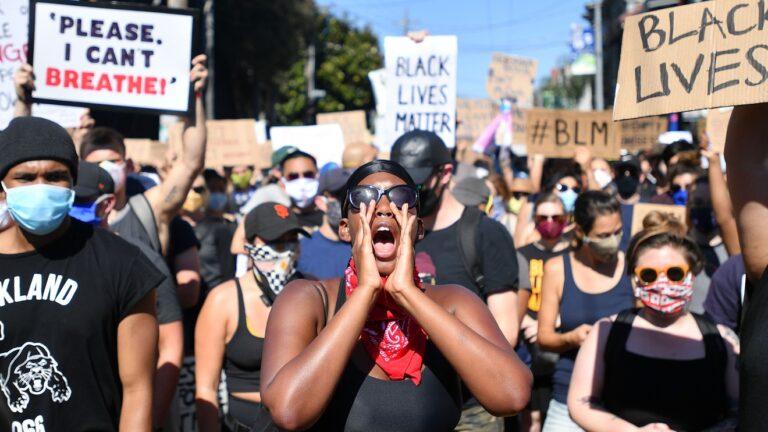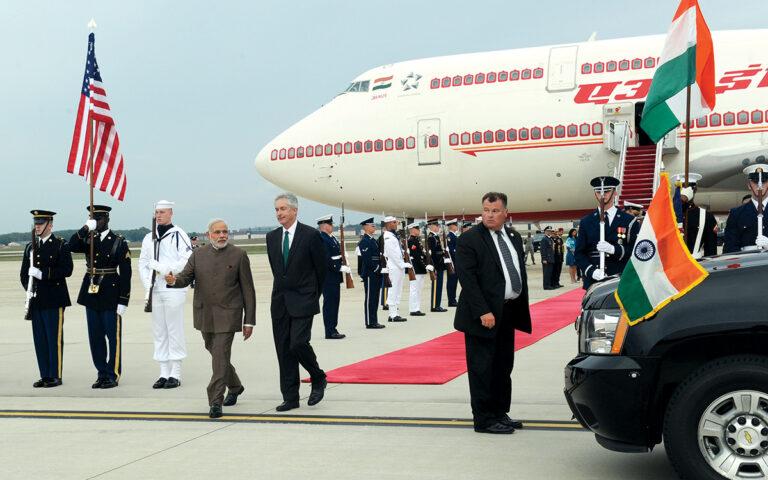Biden is Shifting Leftward?

Racial and other forms of inequality limit US economic strength
The US president-elect Joe Biden did two spectacular things last week which may rewrite the assumption that his presidency would return America back to the Barack Obama era. One was the $1.9 trillion COVID-19 relief plan Biden rolled out Thursday and the other his choice of William Burns, veteran diplomat, to lead the Central Intelligence Agency.
Seemingly unrelated, these two things convey a powerful signal that Biden understands that the real pandemic danger in America is social collapse and what is needed is a national policy that prevents societal disintegration — and a foreign policy which reflects that top priority.
Biden’s advisors had let it be known back in October that if elected, even without waiting until Inauguration Day, he would right away provide an immediate fiscal relief the American economy needs and directed and targeted to middle-class and lower-class families, to the smallest businesses instead of just the big corporations that have the best connections to big banks, since ‘families need to put food on the table to pay their electricity bills, to keep roofs over their heads.’
Biden has kept his word. His spending proposal sets aside $400 billion to address the coronavirus; $1 trillion in direct relief to families and individuals; and $440 billion to help communities and businesses hit the hardest by the pandemic. The proposal envisages:
- Topping up the $600 cash relief passed by Congress last month with $1400 payments additionally;
- Hike in unemployment benefits from $300 to $400 per week through September;
- Fourteen weeks of paid sick and family and medical leave;
- Raise in national minimum wage to $15 per hour;
- Eviction and foreclosure moratoriums;
- $160 billion earmarked for a broad range of programs, including coronavirus vaccination, testing, therapeutics, contact tracing, personal protective equipment, etc.;
- $ 170 billion for schools;
- Billions of dollars earmarked for underserved populations (eg., African-Americans), including health services on tribal lands;
- Billions of dollars more for helping long-term care workers and who have borne the brunt of the pandemic (and who are disproportionately Blacks.)
It is an unabashedly progressive agenda that the left has been trying to advance for decades — and, arguably, the bulk of them do not even have anything to do with the health emergency as such but are social welfare measures.
Interestingly, Biden is not seeking to raise anybody’s taxes to pay for this, but instead proposes to pay for this plan with a series of tax increases on the wealthy, including taxing capital gains as regular income and increasing the marginal tax rate for top earners to almost 40% which he’d announce in spring as a second long-term broader recovery package to “build back” the economy.
The writings of the renowned Serbian-American economist Branko Milanović come to mind. Milanović is famous for his work on income distribution, inequality and poverty. Formerly chief economist at the World Bank and currently teaching at the London School of Economics and the New York City University, his latest work Capitalism, Alone: The Future of the System that Rules the World figured in the Foreign Affairs list of Best Books and earned him acclaim as one among the top 50 thinkers in the year 2020.
Milanović wrote an essay in Foreign Affairs last year in March noticing the lengthening shadows of the pandemic stealthily advancing in America at that time. With extraordinary prescience, he forewarned that “the human toll of the disease will be the most important cost and the one that could lead to societal disintegration. Those who are left hopeless, jobless, and without assets could easily turn against those who are better off.”
“Already, some 30 percent of Americans have zero or negative wealth. If more people emerge from the current crisis with neither money, nor jobs, nor access to health care, and if these people become desperate and angry… If governments have to resort to using paramilitary or military forces to quell, for example, riots or attacks on property, societies could begin to disintegrate. Thus the main (perhaps even the sole) objective of economic policy today should be to prevent social breakdown. Advanced societies must not allow economics, particularly the fortunes of financial markets, to blind them to the fact that the most important role economic policy can play now is to keep social bonds strong under this extraordinary pressure.”
******
On the eve of Biden’s address on Thursday, he announced that Ambassador William Burns will be the Director of the CIA in his administration. It is an unusual choice. Indeed, it is not unusual for an “outsider” to head the CIA. During the past quarter century, out of the ten CIA directors, seven came from “outside” — a smattering of generals and a string of politicians. Yet in CIA’s 73-year history, this will be the first time that the agency is going to be led by a career diplomat.
Biden has made an optimal choice. Burns is widely praised as a “titan of the foreign-policy world” and also happens to belong to that breed of diplomats who believe that diplomacy and espionage are two sides of the same coin. In his wonderful book, The Back Channel: A Memoir of American Diplomacy and the Case for its Renewal, Burns wrote that in foreign policy, diplomats ought to “harness all the tools of American statecraft—from the soft power of ideas, culture, and public diplomacy, to…intelligence-gathering and covert action”.
Interestingly, Burns disavows of the so-called “militarisation” of foreign policy. When asked about it in an interview with the Foreign Service Journal, Burns estimated that “time and time again, we’ve seen how over-reliance on military tools can lead us into policy quicksand. Time and time again, we’ve fallen into the trap of overusing—or prematurely using—force. That comes at much greater cost in American blood and treasure, and tends to make diplomacy a distorted and under-resourced afterthought.”
Without doubt, the choice of Burns is emblematic of where Biden is headed in the conduct of foreign policy. Biden sees Burns as eminently qualified to reinvigorate diplomacy as a critical tool of national power while charioting the intelligence community to devote more attention to its mission of complementing diplomacy.
Burns is also a rare diplomat-intellectual with a mind of his own — who believes that active coordination with China and Russia is necessary to address global challenges to US foreign policy, who derisively looks at the Trump administration’s maximum pressure strategy against Iran being a spectacular failure, who maintains that NATO’s post-cold war expansion was a grave mistake that derailed relations with Russia, and who strongly argues for arms control talks with Russia in mutual interests.
In the interview with the Foreign Service Journal, Burns spoke about the directions of US foreign policy in the contemporary world situation. He said: “The overarching challenge for U.S. foreign policy today, it seems to me, is to adapt to an international landscape in which American dominance is fading. To put it bluntly, America is no longer the only big kid on the geopolitical block. That’s not meant to be a declinist argument. In fact, I’m still bullish about America’s place in the century unfolding before us. We can’t turn the clock back to the post–Cold War unipolar moment. But over at least the next few decades, we can remain the world’s pivotal power—best placed among our friends and rivals to navigate a more crowded, complicated and competitive world. We still have a better hand to play than any of our main competitors, if we play it wisely.”

Deputy Secretary of State William Burns (R) greeted Indian Prime Minister Narendra Modi (L) on a visit to the US, Sept. 29, 2014
Biden’s choice of Burns as CIA director underscores his intention to put diplomacy first in the US foreign policies. It also means engagement, based on the realistic understanding that the US can no longer impose its will on other countries.
The pandemic has accelerated the shift in power and influence from West to East. Biden reposes confidence in Burns to lead the intelligence community into a brave new world where the post-cold war “unipolar moment” has vanished forever.
Fundamentally, Biden’s expectation would be that the US foreign and security policies will reflect his national strategy, “which not only begins at home, in a strong political and economic system, but ends there, too, in more jobs, more prosperity, a healthier environment and better security” — to borrow Burns’ words.
Get the latest reports & analysis with people's perspective on Protests, movements & deep analytical videos, discussions of the current affairs in your Telegram app. Subscribe to NewsClick's Telegram channel & get Real-Time updates on stories, as they get published on our website.














